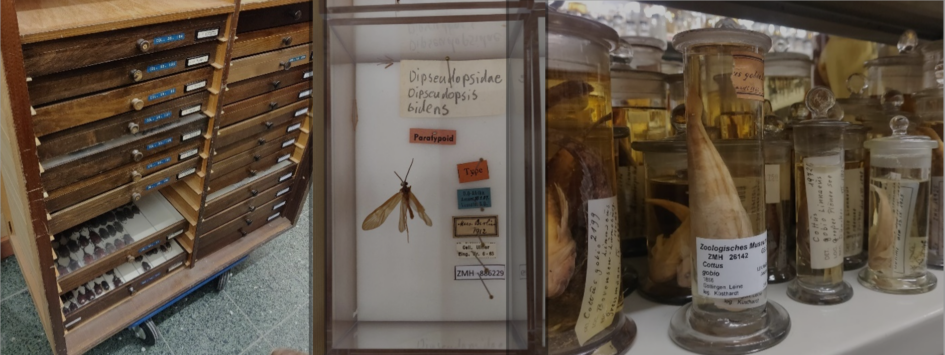In recent years, provenance research on collections from so-called „colonial contexts“ has become a central field in addressing colonial legacies in Europe. Increasingly, natural history collections are coming into the focus of both provenance research and public discourse. In this context, collected animals present unique conceptual and methodological challenges. But they also offer new perspectives for historical scholarship on colonial history and its connections to questions of global justice and current ecological crises and for the growing field of human-animal relations.
The workshop aims to foster an exchange on how postcolonial provenance research on zoological collections can be utilized as a method for historical research. The workshop is designed for early-career-researchers who incorporate postcolonial provenance research on zoological collections as a method into their historical scholarship. Based on presentations of participants’ respective research projects, the workshop offers the opportunity for mutual feedback and exchange on three main themes:
- How does historical research on colonial zoological collecting contribute to new perspectives on colonial and environmental history, as well as for the history of science and knowledge?
- What methodological challenges do provenance researchers face in zoological collections?
- How do public debates about addressing colonial history and anthropogenic biodiversity change influence research about collections of natural objects?
This may include a variety of subtopics and questions, such as:
- How does the collecting of natural objects relate to the phenomenon of colonial collecting and looting in general? In what ways do actors, networks, and infrastructures differ?
- What questions and debates motivated and accompanied zoological collecting?
- How did the boundary between nature and culture influence collection practices, and vice versa?
- How can we conceptualize interrelations between zoology and the colonial and imperial project?
- To what extent can the knowledge produced with these collections be understood as colonial?
- Which role does gender play in the colonial collecting practices and in the produced knowledge?
- To what extent can engagements with colonial collections reveal suppressed natural knowledge of Indigenous and colonized societies, as well as alternative forms of human-nature relationships?
- How can collections become sites for a „more-than-human“ or „multi-species“ history?
- What relationships exist here between colonial human-human and hierarchical human-nature relationships?
- How can researchers practically manage the often vast collections?
- What challenges arise from the interdisciplinary nature of the topic, such as in dealing with biological taxa?
- What opportunities does interdisciplinary collaboration offer, and how can it be organized? How can scientific biodiversity research be combined with historical collection research?
- What specific challenges does working in or with collection institutions entail?
- How can collections and museums become spaces for addressing the entangled histories of the European appropriation of nature and its colonial and imperial expansion?
- To what extent can they facilitate public and global dialogues on issues of global (epistemic) justice and human-nature relationships in a (post-)colonial world and the so-called Anthropocene?
- What role do questions of intellectual property regarding collections and bioprospecting play in these debates?
- How can perspectives and knowledge from the former colonized societies be incorporated into the production of knowledge and meaning?
Abstracts of approximately 300 words on individual projects, along with a one-page CV, are requested by January 19 and should be sent to friederike.odenwald@uni-hamburg.de.
Limited funds are available to assist accepted participants with their travel and accommodation costs. However, coverage cannot be guaranteed. Please indicate directly whether you require support for travel and accommodation costs.

